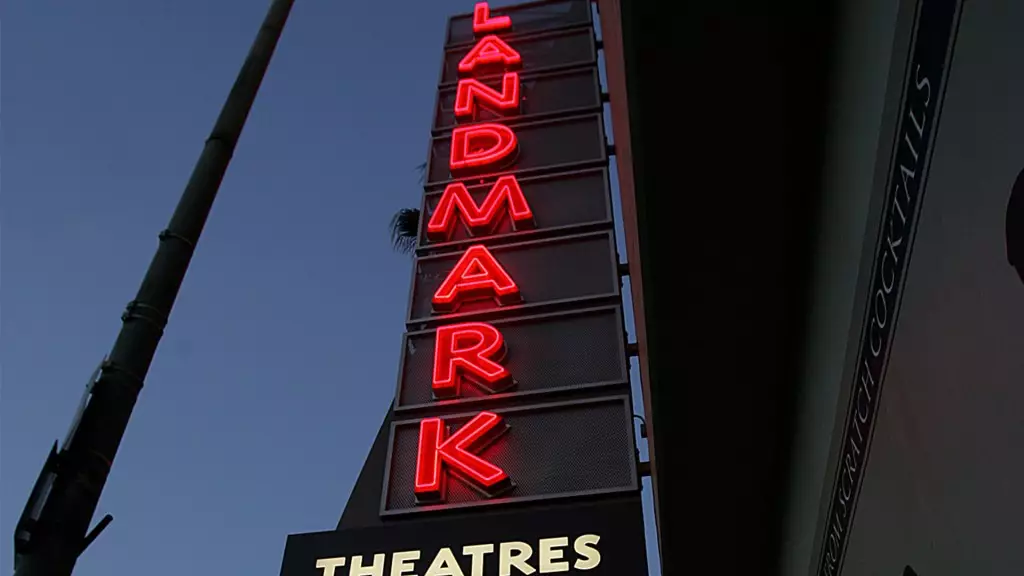Landmark Theatres, a once-prominent name in the arthouse film sector, is currently facing a major financial crisis that has resulted in a steep decline in its value. The confluence of multiple unfavorable factors—ranging from the aftermath of COVID-19 to rising interest rates and industry-wide strikes—has thrust Landmark into turbulent waters. An analysis of recent court filings and depositions reveals a grim picture not only for Landmark but also for the broader landscape of theatrical exhibition.
Legal Entanglements: The Loan Default
Recent court proceedings have exposed the financial strain under which Landmark’s owner, Charles Cohen, operates. According to a deposition made public by Fortress Credit Corp, Cohen defaulted on a significant loan leading to a court ruling that mandates him to sell off Landmark’s assets. The New York State Supreme Court has set a date for the auction of these properties, scheduled for November 8, signaling an urgent need to address mounting debt. The situation has reached a critical juncture, with Cohen facing a personal loan guarantee of $187 million that could adversely affect his financial standing even further.
Fortress has painted a dire picture of Landmark’s financial health, claiming that its properties are in the red, thus potentially yielding proceeds that will fall vastly short of satisfying Cohen’s obligations. Fortress’s claims reflect a broader concern about the viability of independent theaters in this relentless climate. With the auction looming, industry watchers are keenly examining whether Cohen will successfully negotiate a settlement with Fortress to avoid the severe repercussions of liquidation.
Asset Transfers: A Veiled Crisis?
Adding layers to the complexity of Cohen’s financial situation are allegations concerning the strategic transfer of assets. Fortress has raised alarms that Cohen has moved over $70 million in personal assets to shield them from creditors following the court’s summary judgment. Such actions, including transferring a high-value home and luxury boats to trust structures registered in the Cayman Islands, have prompted Fortress to seek immediate court relief to restrain further manipulation of Cohen’s wealth. The urgency in Fortress’s voice highlights their fear that these maneuvers may leave them with little recourse in their pursuit of recovering debts.
These asset transfers have drawn scrutiny, especially considering the precarious financial backdrop in which Landmark operates. If Cohen is found to be intentionally obfuscating his financial position, the ramifications could be severe, not just for him personally, but also for the entire arthouse circuit that relies on successful operators to keep the sector energized.
When exploring the operational challenges facing Landmark, Cohen’s testimony during the deposition highlighted notable revenue shortfalls. He disclosed that Landmark experienced a net revenue loss exceeding $14 million, while the British branch, Curzon, suffered nearly $8.5 million in losses as well. Cohen largely attributed these figures to a series of external disturbances, including persistent high-interest rates and the consequences of Hollywood labor strikes, which resulted in a suspension of film production for many months.
The COVID-19 pandemic had already taken its toll on the theater-going experience. As venues closed their doors and audiences grew accustomed to streaming options, the road to recovery has proved sluggish. The recent Hollywood strikes intensified problems, constraining the availability of new content and further alienating customers from returning to theaters. This shift has brought to the forefront a pressing question for Landmark: Can traditional theatrical models still thrive in an era charted by digital consumption and consumer reluctance?
As Landmark fights to revive its fortunes, it cannot overlook the transformative atmosphere within the film industry. The demand for arthouse content remains, but independent theaters will need to adopt innovative strategies to resonate with today’s audiences. Consumers gravitate increasingly towards unique experiences, and there is an opportunity for theaters like Landmark to recalibrate by integrating modern amenities or pairing niche films with broader releases.
Cohen’s strategy of closing underperforming locations, such as its flagship theater in Westside LA, signals an awareness that operating costs must align with revenue streams. Additionally, a fresh marketing approach that targets a younger demographic could help reinvigorate interest. Engaging stories paired with community-centric programs could reduce customer apprehension and rekindle loyalty in an audience that has had its options radically transformed.
While the future of Landmark Theatres appears uncertain, the sheer resilience of the arthouse model in the face of adversity cannot be underestimated. It calls for a strategic re-examination of business practices, asset management, and audience engagement. Should Cohen succeed in navigating these turbulent waters, not only is there hope for Landmark, but it could also serve as a beacon for independent theatres striving to achieve sustainability as the cinematic landscape evolves.

